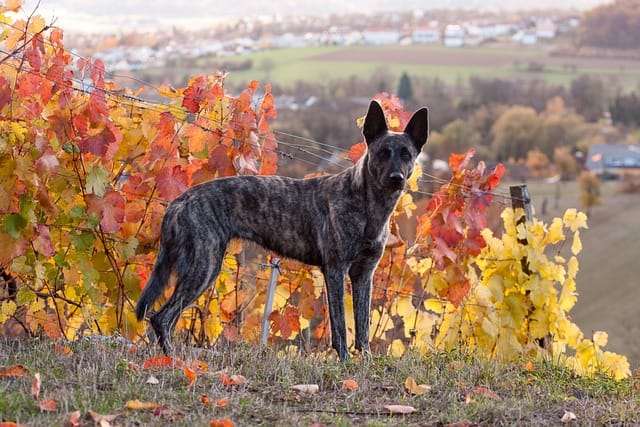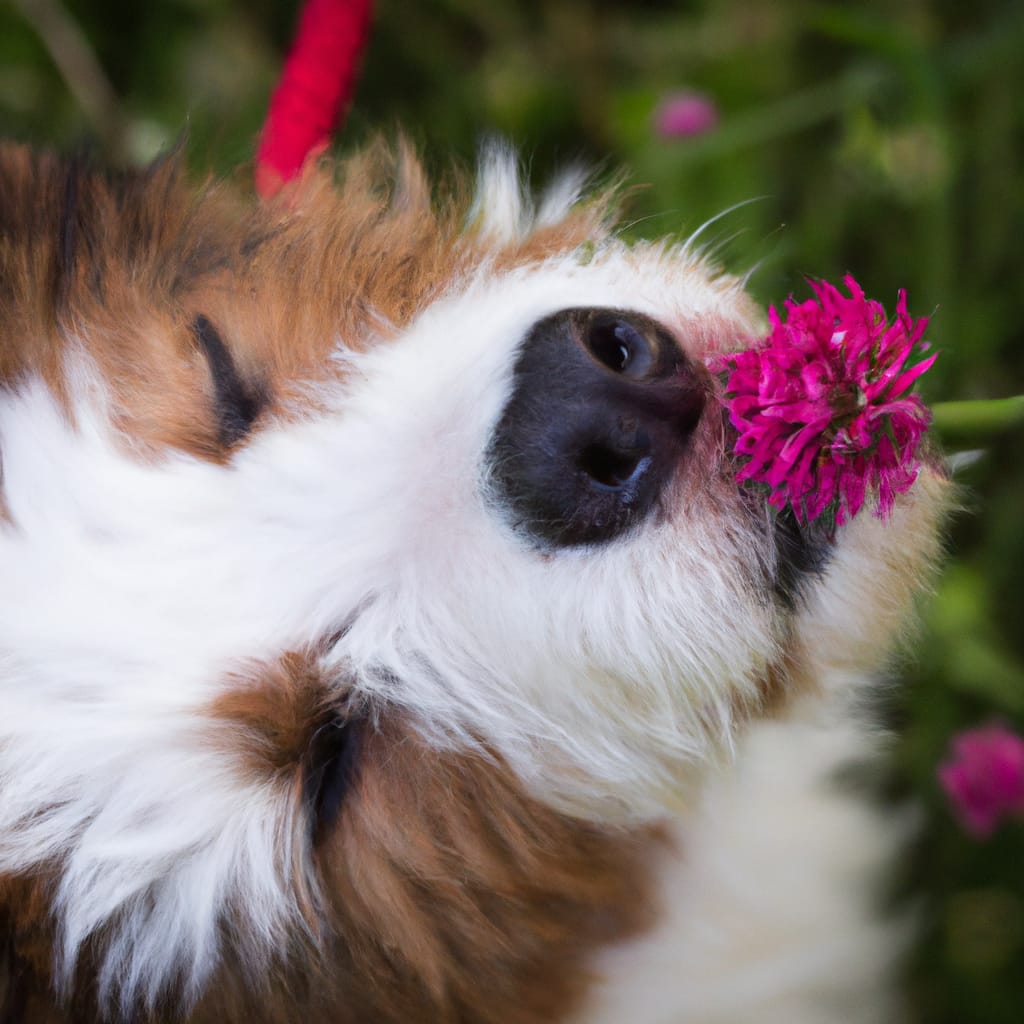Dutch Shepherd Dog Breed Pros And Cons
If you’re considering adding a Dutch Shepherd to your family, it’s important to weigh the pros and cons of this unique breed. Known for their loyalty, intelligence, and versatility, Dutch Shepherds make excellent working dogs, whether it’s in search and rescue, police work, or as a loving companion. However, like any breed, they also have their downsides. From their high energy levels that require ample exercise to their protective nature, it’s essential to be aware of both the benefits and challenges that come with owning a Dutch Shepherd. In this article, we will explore the pros and cons of the Dutch Shepherd breed, helping you make an informed decision about whether this remarkable dog is the right fit for you.
Physical Characteristics
Appearance
The Dutch Shepherd is a well-built and muscular medium-sized dog. They have a strong and sturdy body with a lean and athletic appearance. Their head is wedge-shaped with alert and intelligent eyes. The ears are high set and naturally erect, giving them a keen and attentive expression. Overall, the Dutch Shepherd is a strikingly beautiful dog with a regal presence.
Size
The Dutch Shepherd falls into the medium-sized category. On average, males stand between 22 to 24 inches tall at the shoulder, while females are slightly smaller, ranging from 20 to 22 inches. In terms of weight, males weigh between 55 to 75 pounds, while females weigh slightly less, around 45 to 60 pounds. Their size makes them suitable for a variety of living situations.
Coat
The Dutch Shepherd has a distinct and versatile coat that serves as protection against the elements. Their coat is dense, straight, and of medium length, providing them with insulation in both cold and hot weather. Their coat also helps to protect them from thorns and other natural hazards. The Dutch Shepherd’s fur is weather-resistant, allowing them to withstand harsh outdoor conditions.
Colors
Dutch Shepherds come in a variety of colors, including brindle, fawn, and gold. Their coat can have either a solid color or be marked with a pattern. Some Dutch Shepherds also have a black mask and black tipping on their fur. The unique variety of colors adds to the breed’s visual appeal and gives each individual dog a distinctive look.
Temperament
Intelligence
The Dutch Shepherd is known for its high level of intelligence. They are quick learners and excel in various training activities. Their sharp minds and ability to think independently make them highly adaptable to different environments. This breed thrives on mental stimulation and enjoys challenging tasks, making them an excellent choice for owners who are willing to provide them with plenty of intellectual engagement.
Loyalty
The Dutch Shepherd is incredibly loyal to its family and forms strong bonds with its owners. They have an innate desire to please and protect their loved ones, making them a reliable and trustworthy companion. Their loyalty extends not only to their immediate family but also to extended family members and friends. With their unwavering devotion, the Dutch Shepherd is sure to make a loving and steadfast addition to any family.
Protectiveness
The Dutch Shepherd’s protective nature is one of their standout traits. They have a strong instinct to defend their territory and loved ones, making them excellent guard dogs. They are vigilant, always alerting their owners of any potential threats. Combining their intelligence with their protective instincts, the Dutch Shepherd can be trained to discern between true dangers and false alarms, ensuring a safe and secure environment for their family.
Energy Level
The Dutch Shepherd is an energetic breed that requires regular exercise and mental stimulation. They have a high energy level and thrive in active households. Regular physical activity such as long walks, jogs, and play sessions are essential to keep them happy and healthy. Engaging in mentally stimulating activities like puzzle toys and obedience training also helps to release their mental energy. This breed is best suited for active individuals or families who can provide them with the exercise and stimulation they need.

Training and Exercise
Trainability
The Dutch Shepherd is highly trainable and eager to please their owners. They respond well to positive reinforcement training methods, including praise, rewards, and treats. This breed is intelligent and quick to learn new commands, making them suitable for various training activities such as obedience, agility, and even specialized tasks like search and rescue. With consistent training and proper socialization, the Dutch Shepherd can become a well-behaved and obedient companion.
Exercise Requirements
Due to their high energy levels, the Dutch Shepherd requires a significant amount of exercise on a daily basis. They need at least 60 to 90 minutes of vigorous physical activity to keep them mentally and physically stimulated. Activities such as running, hiking, and playing fetch are excellent ways to burn off their energy. A lack of sufficient exercise can lead to boredom and potentially destructive behavior. It is important to provide them with regular exercise to help maintain their overall well-being.
Mental Stimulation
In addition to physical exercise, the Dutch Shepherd also benefits greatly from mental stimulation. This breed thrives on tasks that challenge their problem-solving skills and encourage them to use their intelligence. Engaging in activities like obedience training, puzzle toys, and scent work can help fulfill their mental needs. Mental stimulation not only keeps them mentally sharp but also helps prevent behavioral issues that may arise from boredom.
Health and Longevity
Common Health Issues
Like any breed, the Dutch Shepherd is prone to certain health issues. Although they are generally a healthy breed, there are a few conditions that may occur more frequently. Some common health issues seen in Dutch Shepherds include hip dysplasia, elbow dysplasia, and progressive retinal atrophy (PRA). Regular veterinary check-ups, a balanced diet, and maintaining a healthy weight can help minimize the risk of developing these health issues.
Life Expectancy
On average, the Dutch Shepherd has a lifespan of 12 to 14 years. With proper care, a healthy diet, regular exercise, and routine veterinary visits, they can live a long and fulfilling life. It is important to note that individual lifespan can vary depending on genetics, overall health, and lifestyle. Responsible breeders who prioritize the health and longevity of their dogs can contribute to the overall lifespan of the breed.
Care Requirements
To ensure the health and well-being of your Dutch Shepherd, it is important to meet their specific care requirements. Regular exercise, a nutritious diet, and routine grooming are essential. This breed thrives in an environment where they receive plenty of mental stimulation and physical activity. Regular grooming, including brushing their coat to remove debris and promote healthy skin and coat, is also important. Additionally, providing them with high-quality food, regular veterinary care, and a safe and secure living space are all crucial components of responsible Dutch Shepherd ownership.

Family Compatibility
Suitable for Families with Kids
The Dutch Shepherd can be a wonderful addition to a family with children if properly socialized and trained from a young age. They are typically gentle and patient with children, making them a suitable companion for kids of all ages. However, as with any dog, supervision and teaching children proper interactions with the dog is essential. Teaching children to approach the dog calmly and respectfully and never to disrupt them while eating or sleeping will help ensure a harmonious and safe relationship between the Dutch Shepherd and children.
Compatibility with Other Pets
With proper socialization and training, the Dutch Shepherd can generally get along well with other pets in the household. Whether it’s cats, small mammals, or other dogs, early and positive introductions are key to fostering a peaceful coexistence. Supervision and gradual introductions, along with ongoing training and socialization, will help ensure that your Dutch Shepherd can live harmoniously with other pets.
Activity Level
High Energy Dog
The Dutch Shepherd is known for being a high-energy breed. They have an abundance of physical and mental energy that needs to be channeled appropriately. Regular exercise is a necessity to prevent restlessness and alleviate potential behavioral issues that may arise from pent-up energy. Long walks, jogs, and engaging in interactive play sessions are all crucial components of keeping a Dutch Shepherd content and fulfilled.
Working Dog
The Dutch Shepherd is a versatile and reliable working dog. They excel in various working roles, including search and rescue, police and military work, and service dog tasks. Their intelligence, drive, and agility make them highly suitable for demanding and specialized tasks. Their exceptional work ethic and eagerness to please their handlers make them a valuable asset in the working dog community.
Grooming Needs
Coat Maintenance
The Dutch Shepherd has a moderate grooming requirement. Their double coat should be brushed regularly to remove loose hair and prevent matting. A slicker brush or grooming mitt can be used to effectively remove dirt and debris from their coat. Bathing should be done as needed to keep them clean and fresh. Additionally, regular checks should be made to ensure their nails are trimmed, their ears are clean, and their teeth are healthy.
Shedding
As a breed with a double coat, the Dutch Shepherd does shed. However, their shedding is considered moderate and generally manageable with regular brushing. During shedding seasons, which typically occur twice a year, their coat will shed more heavily. During this time, more frequent brushing may be necessary to keep their fur under control. Overall, proper grooming, regular brushing, and conscientious attention to their coat can help minimize shedding in the Dutch Shepherd.
Protection and Guarding
Instinctive Guarding
With a strong protective instinct, the Dutch Shepherd is a natural guardian. They are naturally wary of strangers and will alert their owners to any potential threats. This instinctive guarding behavior, paired with their intelligence and trainability, makes them exceptional watchdogs. They have a keen sense of their surroundings and will do whatever it takes to protect their loved ones and their territory.
Protective Nature
Beyond their instinctive guarding behavior, the Dutch Shepherd has a naturally protective nature. They are deeply loyal to their family and will go to great lengths to keep them safe. This protective nature extends beyond the home and into public spaces, making them a reliable companion wherever you go. With their protective instincts and loyal devotion, the Dutch Shepherd provides a sense of security and peace of mind to their owners.
Versatility and Adaptability
Working Abilities
The Dutch Shepherd is highly versatile and excels in various working roles. From search and rescue operations to police and military work, this breed consistently proves its worth in demanding tasks. Their intelligence, agility, and strong work ethic make them a valuable asset in many fields. The Dutch Shepherd’s ability to adapt to different working environments showcases its versatility and highlights its value as a working dog.
Adaptability to Different Environments
The Dutch Shepherd is adaptable to different environments, making them suitable for a range of living situations. Whether it’s a rural setting with plenty of space to roam or an urban apartment with access to regular exercise opportunities, the Dutch Shepherd can thrive in diverse surroundings. It is important, however, to ensure that they receive the physical and mental stimulation they require to prevent boredom and behavioral issues.
Socialization and Training Requirements
Early Socialization
Early socialization is vital for the Dutch Shepherd. Introducing them to various people, animals, and environments from a young age helps them develop into well-rounded adults. Exposing them to different sights, sounds, and situations ensures they grow up to be confident and well-adjusted dogs. Enrolling them in puppy classes and providing positive experiences with new stimuli will help build a solid foundation for their socialization.
Obedience Training
Obedience training is crucial for the Dutch Shepherd due to their intelligence and high energy levels. Consistent and positive reinforcement training methods are highly effective for this breed. Training sessions should be structured, engaging, and challenging, using reward-based techniques to encourage desirable behaviors. Obedience training not only helps to ensure a well-behaved dog but also strengthens the bond between owner and Dutch Shepherd. Regular training sessions throughout their lives will help keep their minds sharp and their behavior in check.
In conclusion, the Dutch Shepherd is a remarkable and versatile breed with a multitude of positive attributes. From their striking physical appearance to their high intelligence and protectiveness, they possess many qualities that make them an excellent companion and working dog. However, it is important to consider their high energy levels, training and exercise requirements, and grooming needs when considering adding a Dutch Shepherd to your family. With proper care, training, and socialization, the Dutch Shepherd can bring immeasurable joy and loyalty to your life.











